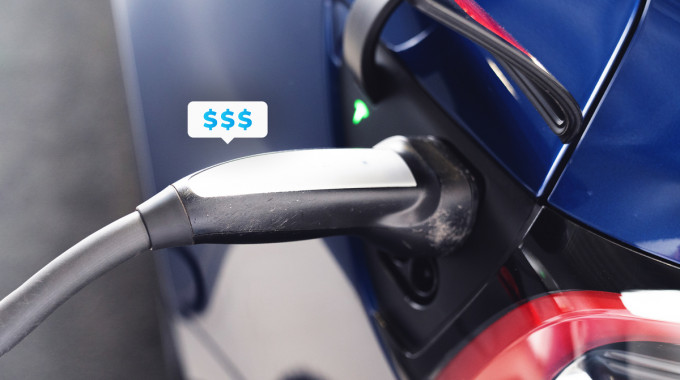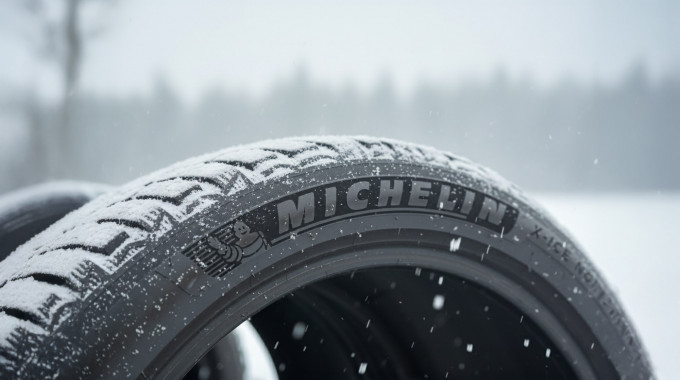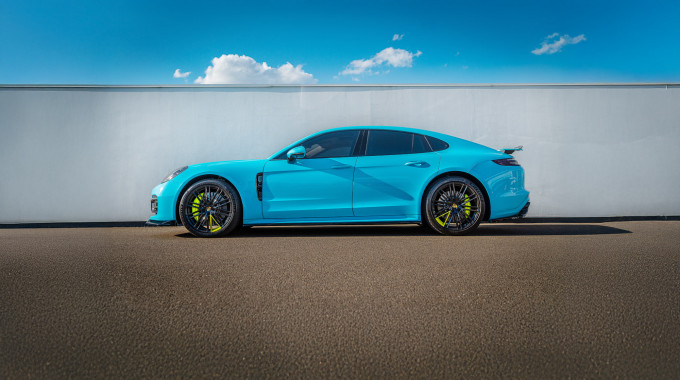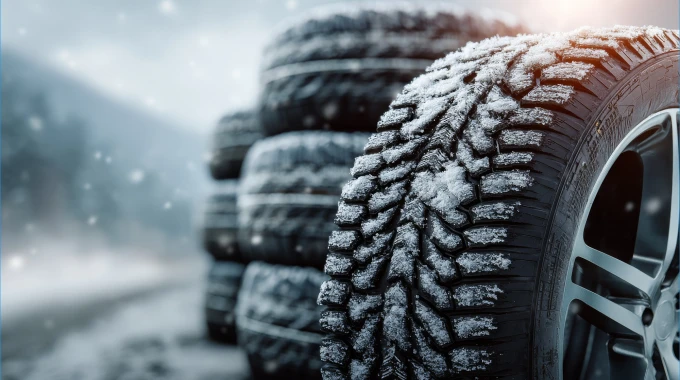
Charging a Tesla: How Much Will It Cost & How Long Will It Take?
Ready to embark on the Tesla adventure? Owning an electric car is a different experience than owning a gasoline-powered one, and many questions come along with it. One of the main reasons people shift from gasoline to electric, is reduced running costs.
But how much does it really cost to run a Tesla, and perhaps more importantly, how long does it take? Here’s a quick rundown of Tesla charging costs and times when owning one of Elon Musk’s electric machines.
If you happen to be shopping for a new vehicle you can get pre-approved for your car loan online in minutes here. You'll get connected with a local dealer in your area who will show you all the vehicles you qualify for, including any electric models.
Charging costs vary with location and how you charge
The first thing you need to know about owning a Tesla, or any electric vehicle for that matter, is that charging costs will vary depending on how you charge your vehicle, but also where you live in Canada. Let’s focus on the three major provinces where EVs are currently sold the most: Quebec, British Columbia, and Ontario.
Charging at home is the most affordable and convenient
The most affordable and convenient way to charge a Tesla, or any electric vehicle for that matter, is at home. Most, if not all EV buyers purchase a level 2 (240 volt) home charger to do this.
Investing in your own charging equipment, such as a Tesla Wall Connector, can further optimize your charging experience at home. This charging equipment ensures a reliable charging connection and can charge your Tesla vehicle faster than standard outlets. Additionally, charging at home allows you to take advantage of lower electricity rates during off-peak hours, avoiding expensive electricity costs.
The best practice when owning an electric car is to plug it in the evening before going to bed and unplugging it in the morning like a smartphone. This typically takes between 8 and 12 hours depending on the car model you own. And because the charging cycle is happening during off-peak hours, energy consumption rates are typically lower.
Charging a Tesla in Quebec, Ontario, and British Columbia
Home charging costs will vary from one province to the next, but also according to your energy company’s rates. For instance, Hydro Québec’s rates are set at 6.294 cents per kilowatt hour (kWh) during the first 1,200 kWh consumed. Assuming you own a Tesla Model 3 powered by a 53-kWh battery, it would cost you anywhere between $3.00 and $4.00 to fully charge your Tesla overnight from your home charger.
In Ontario, where the province’s electricity rates are set at 8.7 cents per kWh during off-peak hours, a similar scenario would come out to roughly $5.00.
In B.C., where electricity costs 9.75 cents per kWh during the first 1,350 kWh consumed, expect to pay anywhere between $5.00 and $6.00 for an overnight home charge.
The actual charging cost will depend on your Tesla's battery capacity and the local electricity cost per kilowatt-hour. As the battery capacity varies across different Tesla models, your charge cost may differ. For example, charging a Tesla Model S with a larger battery will cost more than charging a Model 3 with a smaller battery. Additionally, the cost per kilowatt-hour can vary depending on the time of day and your electricity provider.
Costs of Tesla Supercharger and public chargers
While on the go, you’ll need to rely on public charging stations to fill up your Tesla. Luckily, Tesla has a well-established charging network called the Tesla Supercharger Network. The network’s chargers are scattered across Canada and can easily be found via the Tesla app or your car’s infotainment system.
Tesla's Supercharger network consists of DC fast chargers strategically located to facilitate long-distance travel for Tesla owners. These Tesla Supercharger stations can recharge your vehicle significantly faster than standard EV chargers, making them ideal for road trips. The charging cost at Superchargers is automatically billed to your Tesla account, providing a seamless charging experience. Occasionally, Tesla offers free supercharging promotions, which can further reduce your overall Tesla charging costs.
Tesla offers different rates and deals for the Supercharger service. For instance, we’ve seen Tesla offer a free one-year trial to all new Model 3 buyers. Otherwise, Tesla rates typically hang around 26 cents per kWh (this is an estimate and rates vary from each charging station according to their power).
If you’re not using a Tesla Supercharger, public chargers are also available. It’s however important to underline that some of these chargers could require a special adapter to connect to your Tesla.
To use public EV chargers, you may need specific charging equipment or adapters to ensure a proper charging connection. This is especially true when using non-Tesla charging stations.
Rates for public charging installations typically vary from one company to the next. Some will bill you per kWh, others, like Quebec’s Electric Circuit grid for instance, bill you per minute, or per hour. As we write this, EV owners typically pay no more than $20.00 to charge their car on a public charger in Canada.
Sell your car (the easy way)
If you're thinking about buying an electric car, you might be looking to sell your gas-powered car. Visit our online tool and get an instant cash offer for your vehicle today.
Switching from a gas car to a Tesla not only reduces your fuel costs but also lowers your environmental impact. By transitioning to an electric vehicle, you avoid the fluctuating gas prices and enjoy the benefits of electric mobility.
Charging times vary according to different factors
We’ve already established that on a level 2 home charger, a Tesla takes anywhere between 10 and 12 hours to fully charge. But charging times will be considerably quicker at a Tesla Supercharger or on a level 3 (400 volts) public charger.
Charging times vary according to the car’s charging capacity and the charger’s ability to supply it. EV charging speeds are typically measured in kilowatts (kW). For instance, if a charger has a charging speed of 250 kW, but the car can only receive 100 kW, the charger will reduce its speed to adapt to the car’s limitations. The amount of power the charger can send to the battery determines how long it takes to charge it.
Different Tesla models, including the dual motor variants, have varying charging capabilities. When charging a Tesla model equipped with dual motors, you may experience faster acceleration but similar charging times compared to single motor models. Understanding the charging speed of various Tesla models helps in planning your charging stops during a road trip.
The following chart shows the charging speed of all current Tesla models:
|
Tesla Model |
Charging Speed |
|
Model 3 Rear-wheel Drive |
170 kW |
|
Model 3 Long Range AWD / Performance |
250 kW |
|
Model Y Long Range AWD / Performance |
250 kW |
|
Model S / Plaid |
250 kW |
|
Model X / Plaid |
250 kW |
Tesla’s Supercharger network can supply anywhere between 90 and 300 kW of power. Assuming a Tesla Model S Plaid, which we reviewed here, is connected to a 250 kW charger, it would take you 15 minutes to regain 320 km of range.

2021 Model S Plaid | Photo: Tesla
Finding a fast charger that’s compatible with your Tesla is the key to reducing charging times. Modern public charging stations offer up to 350 kW of power. This information is typically written on the unit itself or on the network’s mobile app.
Using DC fast chargers like the ones in the Tesla Supercharger Network can significantly reduce your charging time. For EV drivers planning long trips, knowing where these fast charging stations are located is crucial. Tesla's navigation system can help you find the optimal charging stops along your route.
It’s important to know your car’s capacity and the charger’s output to determine how quickly you can get back on the road. Once connected, your car’s onboard computer will tell you how much time is needed for a full charge.
Tesla Model 3 and kWh: Understanding Consumption and Costs
Tesla's Model 3 is one of the most popular electric vehicles on the market, celebrated for its efficiency and relatively affordable pricing within Tesla's lineup. The Model 3’s battery capacity ranges between 50 kWh and 82 kWh, depending on the variant. The Standard Range Plus (now called Rear-Wheel Drive) has a smaller battery (~50 kWh), while the Long Range and Performance models feature larger capacities (~75–82 kWh) for extended driving distances.
The Model 3 consumes approximately 13 to 18 kWh per 100 kilometers, depending on factors like speed, terrain, and weather. For instance, the Standard Range Plus is more efficient, consuming 13–15 kWh per 100 km, while the Long Range and Performance models consume 16–18 kWh per 100 km due to added weight and performance.
To calculate charging costs, multiply the battery capacity by your local electricity rate. For example, at $0.13 per kWh, fully charging an 82 kWh battery costs about $10.66. Public charging, such as Tesla Superchargers, may cost more, typically $0.28 to $0.40 per kWh, increasing the total cost slightly.
Compared to gasoline vehicles, the savings are significant. Gas-powered cars use 7–10 liters per 100 km, and at $1.50 per liter, driving 100 km costs $10.50–$15.00. In contrast, a Tesla Model 3 costs around $1.95–$2.70 for the same distance, making electric cars much cheaper to operate.
Tesla owners enjoy consistently lower charging costs compared to fueling gas cars, as electricity is generally cheaper and more stable in price than gasoline. These savings make electric vehicles like the Tesla Model 3 both economical and environmentally friendly over time.
Final thoughts on charging your Tesla in Canada
That all being said, there are other important factors to consider when charging your Tesla on public chargers. For instance, it’s not recommended to use a level 3 fast charger for a 100% charge. These chargers typically slow down at around 80% to protect the battery from early degradation. Remember: public chargers are there to help replenish on the road. We recommend you use a level 2 home charger for a full charge.
It’s also important to note that cold weather negatively affects charging speeds. The battery’s state of health also influences charging times. If your battery is showing signs of degradation, it may not charge as quickly as when it was new.
Investing in solar panels or a solar power system at home can further reduce your Tesla charging costs over time. By generating your own electricity, you can offset expensive electricity rates and enjoy the benefits of solar power. While the upfront costs of installing a solar system can be high, the long-term savings and environmental benefits make it a worthwhile consideration for Tesla owners.
If you’re shopping for a used Tesla or electric vehicle we recommend getting pre-approved for your car loan first, so you can shop with confidence knowing exactly how much you can afford.







